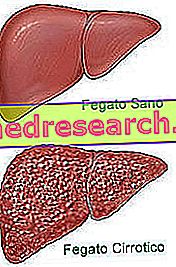This article aims to help the reader in the rapid identification of natural remedies useful in the treatment of various symptoms, disorders and pathologies. For some of the listed remedies, this utility may not have been confirmed by sufficient experimental tests conducted with a scientific method. Furthermore, any natural remedy presents potential risks and contraindications.
If available, we therefore recommend that you click on the link corresponding to the individual remedy to learn more about the topic. In any case, we remind you of the importance of avoiding self-treatment and to consult your doctor beforehand to ascertain the absence of contraindications and drug interactions.

Antipyretic is defined as any medicine capable of attenuating or eliminating the febrile states of our body.
Fever is a temperature rise above normal levels. Remember that body temperature is normally between 36.4 and 37.2 ° C. Fever is not a pathological condition, but a symptom that arises in response to a certain disease or inflammation. Diaphoretics, therefore substances that increase sweating by reducing body temperature, lend themselves very well against feverish states.
Synonyms for antipyretics
Antipyretic plants are also known as: febrifuge, antifebrile.
Antipyretic medicinal plants and supplements with antipyretic properties
Willow, cinchona, Gentian, cape gooseberry, enula, Chamomile, minor centaurea, wormwood, mistletoe, horehound, hawthorn, Spirea olmaria, devil's claw, willow, see diaphoretic plants.



